Corporate Governance
This report complies with the Directive on Information relating to Corporate Governance (DCG) of 29 June 2022 of the SIX Exchange Regulation. Unless otherwise indicated, the disclosures apply as of 31 December 2023.
1.Group structure and shareholder base
1.1.Group structure
1.1.1.Operational Group structure
As of 31 December 2023, the operational Group structure of Arbonia AG comprises (1) the Climate Division (formerly the Heating, Ventilation and Air Conditioning Division) and (2) the Doors Division with the Wood Solutions Business Unit and the Glass Solutions Business Unit (see divisional structure). Together with the Finance / Controlling / Reporting area, the two divisions form the Group’s operational structure as of 31 December 2023.
As of 31 December 2023, Arbonia Group Management comprised the Group Chief Financial Officer ("Group CFO") and the CEOs of the two divisions (1) Climate and (2) Doors. Group Management is headed by the Executive Chairman of the Board of Directors, who is not a member of Group Management himself. Group Management is supported by Corporate Functions.
The company reports in line with IFRS on the basis of the above divisional structure. The Board of Directors of Arbonia is examining several expressions of interest but also offers for the sale of the Climate Division (formerly HVAC). As at the balance sheet date 31 December 2023, a sale of the Climate Division is considered highly probable and consequently, in accordance with IFRS 5, Arbonia repots Climate Division as discontinued operations. Descriptions of the divisions as of 31 December 2022 can be found.
1.1.2.Scope of consolidation
The scope of consolidation of Arbonia AG, headquartered in Arbon TG ("Arbonia" or the "company") comprises the Group companies listed in the financial report (collectively the "Group"). The name, registered office and share capital of the Group companies, as well as the interests held by the Group, are also detailed on these pages. Arbonia shares are listed at the SIX Swiss Exchange in Zurich under securities number 11 024 060 (ISIN CH0110240600). Information about market capitalisation can be found in the Supplementary Information for Investors. Other than Arbonia, none of the other Group companies included in the scope of consolidation are listed at any stock exchange in Switzerland or abroad.
1.2.Major shareholders
On 17 December 2016, Artemis Beteiligungen I AG, which is controlled by Michael Pieper, reported a shareholding of 20.02% (www.ser-ag.com/en/resources/notifications-market-participants/significant-shareholders.html). As of 31 December 2023, the shareholding of Artemis Beteiligungen I AG amounts to 22.56%.
On 8 July 2023, UBS Fund Management (Switzerland) AG reported a shareholding of 3.26% (www.ser-ag.com/en/resources/notifications-market-participants/significant-shareholders.html).
Arbonia is not aware of any shareholders’ agreements among its shareholders.
1.3.Cross-shareholdings
No cross-shareholdings of more than 5% of the votes or the capital exist between Arbonia and other companies.
2.Capital structure
2.1.Capital
As of 31 December 2023, the ordinary capital of Arbonia is CHF 291 787 620.60, the conditional capital for convertible bonds and options, option rights and similar forms of financing is CHF 57 960 000 and the conditional capital for rights of employees and members of the Board of Directors for the acquisition of shares is CHF 8 820 000. The capital band has a lower threshold of CHF 262 807 620.60 and an upper threshold of CHF 349 747 620.60. The company has no authorised capital.
The ordinary capital results from note 48 of the appendix to the consolidated financial statement.
2.2.Capital band and conditional capital
Capital band
The capital band has a lower threshold of CHF 262 807 620.60 and an upper threshold of CHF 349 747 620.60. Accordingly, the capital may currently be increased by 13 800 000 registered shares with a nominal value of CHF 4.20 per share and decreased by CHF 6 900 000 registered shares with a nominal value of CHF 4.20. The nominal value may be reduced to no less than CHF 3.783. The capital band is valid until 20 April 2028.
In certain circumstances, the Board of Directors can exclude in whole or part the subscription right of shareholders in favour of third parties. Shares can be issued in one or multiple stages.
The capital band and conditional capital are available on an alternative instead of a cumulative basis. If new shares are issued based on the capital band, the conditional capital shall also decrease by the same amount as the capital band.
The capital band was not used in 2023.
Conditional capital
The share capital can be increased for financing purposes (convertible bonds and options, option rights and similar forms of financing) by a maximum of CHF 57 960 000 by issuing a maximum of 13 800 000 registered shares with a nominal value of CHF 4.20 each, which shall be fully paid up. The share capital can be increased for employee participation purposes by a maximum of CHF 8 820 000 by issuing a maximum of 2 100 000 registered shares with a nominal value of CHF 4.20 each, which shall be fully paid up. These registered shares are to be issued upon exercise of option rights granted in conjunction with convertible bonds, bonds with option rights, or similar forms of financing offered by Arbonia or one of its subsidiaries. Shareholders’ subscription rights are excluded.
If new shares are issued based on the conditional capital, the capital band shall also decrease by the same amount as the conditional capital.
The conditional capital was not used in 2023.
Group of beneficiaries, conditions and modalities
The group of beneficiaries and the conditions and modalities for issuing shares from the capital band and the conditional capital are described in Article 3a, Article 3b and Article 3c of the Articles of Association (including with reference to Article 5 of the Articles of Association). The Articles of Association are available at www.arbonia.com/en/corporate-governance.
2.3.Changes in capital
In the last three reporting years (2021 – 2023), the share capital of CHF 291 787 620.60, which is fully paid up and divided into 69 473 243 registered shares with a nominal value of CHF 4.20 each, remained unchanged.
2.4.Shares and participation certificates
The company has issued 69 473 243 registered shares at a nominal value of CHF 4.20. Each registered share grants the same entitlement to receive dividends and represents one vote at the General Meeting. No preferential rights have been granted. The company has not issued any participation certificates.
2.5.Dividend right certificates
The company has not issued any dividend right certificates.
2.6.Limitations on transferability and nominee registrations
2.6.1.Limitations on transferability
On request, purchasers and beneficiaries of registered shares are registered in the share register as shareholders with voting rights if they expressly declare that they have purchased and will maintain the shares in their own name and for their own account.
2.6.2.Granting of exceptions
The company’s Articles of Association do not permit any exceptions to the rules described above in 2.6.1. Accordingly, the Board of Directors did not grant any exceptions in the reporting year.
2.6.3.Nominee registrations
Nominees are persons who, on applying for registration, do not explicitly declare that they hold the shares for their own account and with whom the Board of Directors has signed an agreement to this effect. No nominee is entered in the share register with voting rights for more than 3% of the registered share capital entered in the Commercial Register. Beyond this limit, a nominee is only entered in the share register with voting rights insofar as he or she discloses the names, addresses and shareholdings of the persons for whose account he or she holds 0.5% or more of the registered share capital entered in the share register. In the event of such a disclosure, the nominee concerned is entered in the share register with voting rights up to a maximum of 8% of the registered share capital entered in the Commercial Register.
2.6.4.Procedure and requirements for limitations on transferability
Under Article 13 para. 7 of the Articles of Association (www.arbonia.com/en/corporate-governance), limitations on the transferability of registered shares require the approval of at least two thirds of the voting shares represented and the majority of the nominal share values represented.
2.7.Convertible bonds and options
There are no outstanding convertible bonds or options issued by Arbonia.
3.Board of Directors
The Board of Directors of Arbonia consists of experts who cover all key subject areas of Arbonia as a focused building components supplier. The Board of Directors attaches due importance to the diversity of the body, reflecting one of the Group’s corporate principles. When positions on the Board of Directors are filled in the future, the legal gender quotas will be taken into account.
3.1.Members of the Board of Directors
As of 31 December 2023, the Board of Directors consisted of the following members:
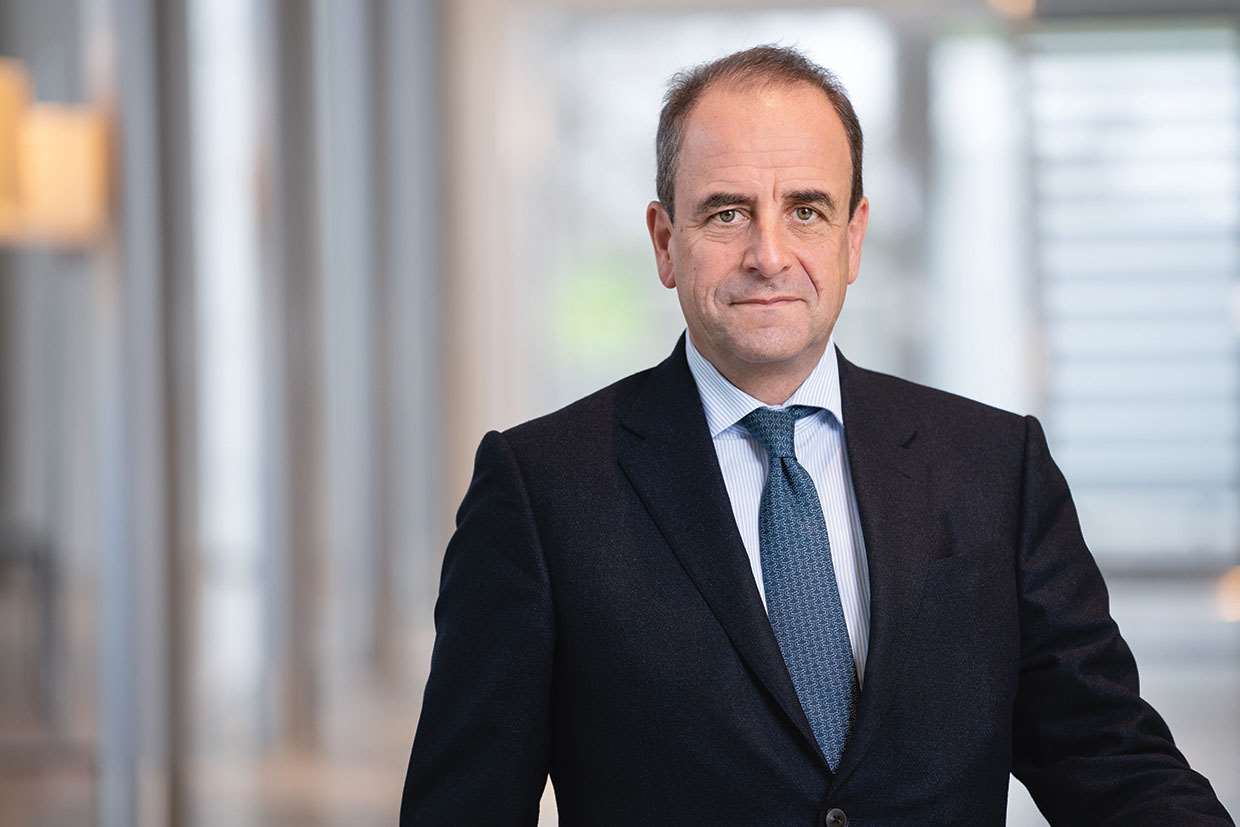
Alexander von Witzleben
1963, German citizen, resident in Erlenbach ZH, degree in business management, from 17 April 2015 to 30 June 2015 Chairman of the Board of Directors, from 1 July 2015 to 22 April 2022 Chairman and delegate of the Board of Directors and interim CEO and since 22 April 2022 Executive Chairman of the Board of Directors (see 3.5). 1990 – 1993 KPMG Deutsche Treuhand Gesellschaft, Munich (D); 1993 – 1995 Head of Central Finance / Controlling JENOPTIK AG, Jena (D); 1996 – 2003 Member of the Board of Directors, CFO, JENOPTIK AG, Jena (D); 2003 – 2007 Chairman of the Board of Directors, CEO, JENOPTIK AG, Jena (D); 2007 – 2008 member of the Board of Directors of Franz Haniel & Cie. GmbH, Duisburg (D); since 2009 Chairman of the Board of Directors of Feintool International Holding AG, Lyss and interim CEO in 2009. Since 15 June 2015, Alexander von Witzleben has been a member of the Board of Directors of Artemis Holding AG, Hergiswil. This company has a shareholding of 22.56% in Arbonia and a shareholding of 50.1% in Feintool International Holding AG, Lyss. Alexander von Witzleben was a member of the management board of Arbonia on an interim basis until 22 April 2022. Aside from this, he has no material business relationships with Arbonia or its Group companies.
Other activities and vested interests: member of the Board of Directors of KAEFER SE & Co. KG, Bremen (D); Chairman of the supervisory board of PVA TePla AG, Wettenberg (D); Chairman of the supervisory board of VERBIO SE, Leipzig (D); member of the supervisory board of Siegwerk Druckfarben AG & Co. KGaA, Siegburg (D); member of the Board of Directors of Artemis Holding AG, Hergiswil NW; Chairman of the Board of Directors of Feintool International Holding AG, Lyss BE; member of the Board of Directors of Innoviz Technologies Ltd, Nitzba (IL).

Peter Barandun
1964, Swiss citizen, resident in Einsiedeln SZ, Executive MBA HSG, non-executive Vice Chairman of the Board of Directors since 17 April 2015 (2014 – 2015 non-executive member of the Board of Directors). 1995 – 1996 Head of Sales Switzerland / member of the management board of Bauknecht AG, Lenzburg; 1996 – 2002 Managing Director of the divisions Electrolux and Zanussi Electrolux AG, Zurich; since 2002 CEO of Electrolux Switzerland / Chairman of the Board of Directors of Electrolux AG, Zurich. Peter Barandun has never been part of the management board of Arbonia or one of its Group companies. He has no material business relationships with Arbonia or its Group companies.
Other activities and vested interests: Chairman of the Board of Directors of Electrolux Holding AG, Zurich ZH and of Electrolux AG, Zurich ZH; Vice Chairman of FEA (Swiss Association of the Domestic and Industrial Electrical Appliances), Zurich ZH; Vice President of the Swiss ski association Swiss-Ski, Muri near Bern BE; member of the Board of Directors of Fundamenta Group Holding AG, Zug ZG.
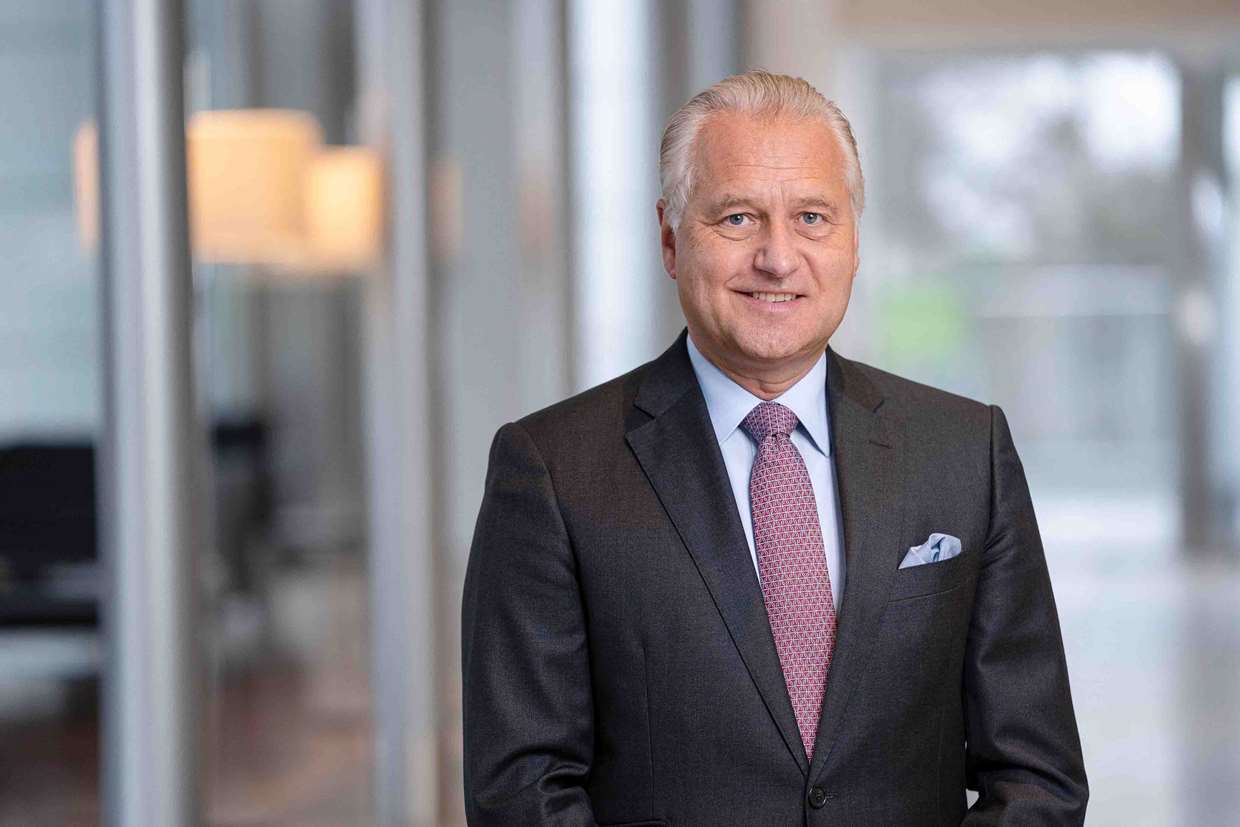
Peter E. Bodmer
1964, Swiss citizen, resident in Küsnacht ZH, lic. oec. publ., Executive MBA, IMD, non-executive member of the Board of Directors since 19 April 2013. 1993 – 1994 Head of Sales at Kaiser Precision Tooling Ltd, Rümlang; 1995 – 1998 Dep. Managing Director, Head of Integration and CFO Europe of GKN Sinter Metals GmbH; 1998 – 2005 COO and CFO of Maag Holding AG; 2005 – 2012 member of Group Management at the Implenia Group; since 2011 various management and consulting mandates as Chairman and CEO of the BEKA Group. Peter E. Bodmer has never been part of the management board of Arbonia or one of its Group companies. He has no material business relationships with Arbonia or its Group companies.
Other activities and vested interests: member of the Board of Directors of Peach Property Group AG, Zurich ZH; member of the Board of Directors of Kuratle Group AG, Leibstadt AG; member of the Board of Directors of Brütsch / Rüegger Holding AG, Urdorf ZH; Vice Chairman of the Board of Directors of Helvetica Property Investors AG, Zurich ZH; member of the Board of Directors of INOVETICA Holding AG, Baar ZG; Chairman of the foundation board of the Innovation Park Zurich foundation, Dübendorf ZH; Chairman of the foundation board of Profond Pension Fund, Zurich ZH; Vice President of the foundation board of the Wilhelm Schulthess-Stiftung, Zurich ZH; member of the Board of Directors of Klinik Schloss Mammern AG, Mammern TG; member of the Board of Directors of Nüssli (Schweiz) AG, Hüttwilen TG; Vice President of the Board of the University of Zurich, Zurich ZH; active as an advisor to various companies, whereby his activities as an advisor do not present any conflict of interest with the Arbonia Group.
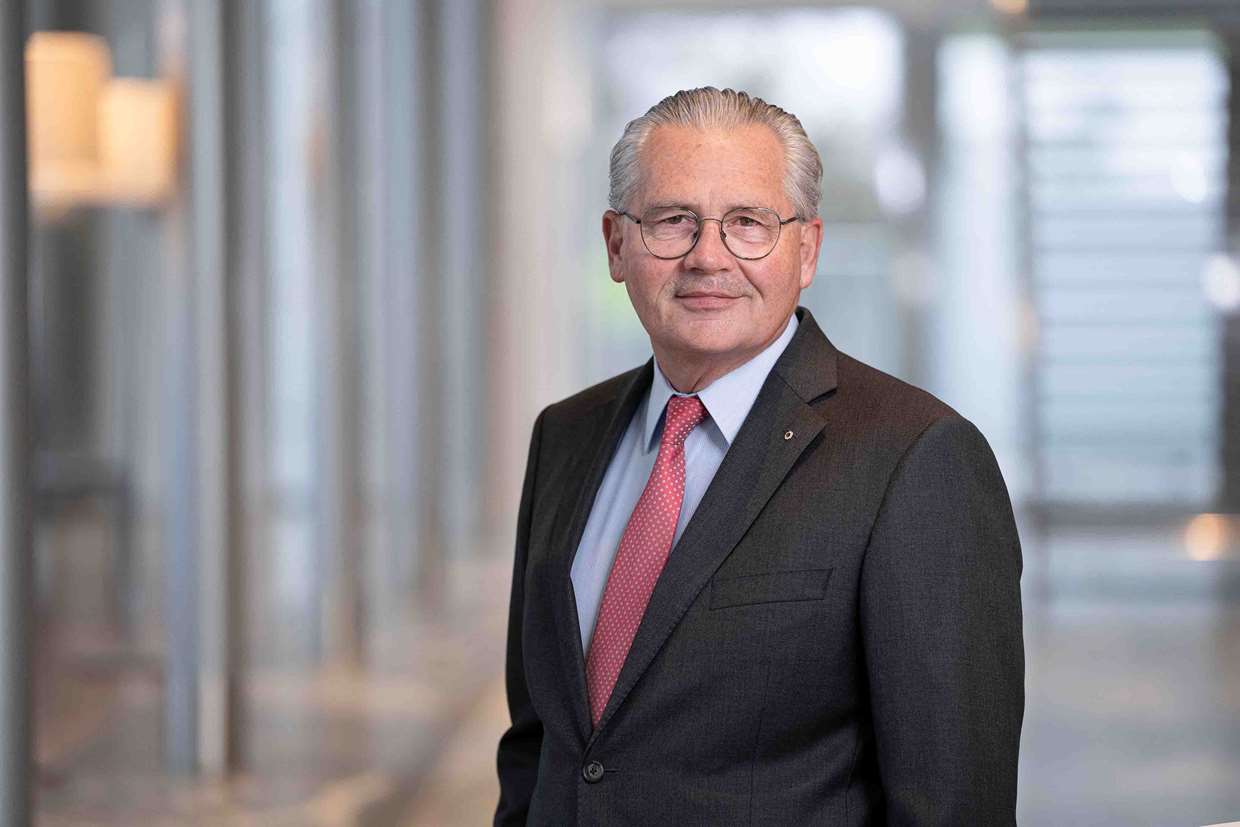
Markus Oppliger
1959, Swiss citizen, resident in Wangs SG, Swiss cert. expert in accounting and controlling, Swiss cert. auditor, non-executive member of the Board of Directors since 19 April 2013. 1978 – 1983 Prefera Treuhandgesellschaft Sargans; 1983 – 1988 Bank in Liechtenstein / Prince of Liechtenstein Foundation; 1989 – 2013 at Ernst & Young, partner from 1996 and Quality & Risk Management Leader of the Advisory Services of Ernst & Young GSA (Germany, Switzerland, Austria) from 2009; various consulting mandates as an independent management consultant and owner of Oppliger Management Consulting since 2013. Markus Oppliger has never been part of the management board of Arbonia or one of its Group companies. He has no material business relationships with Arbonia or its Group companies.
Other activities and vested interests: Chairman of the Board of Directors of Pizolbahnen AG, Bad Ragaz SG; member of the foundation board of Stiftung Pizol mit Herz, Vilters-Wangs SG; judge at the commercial court in the canton of St. Gallen for the term of office 2023 / 2029; member of the Board of Directors at St. Gallisch-Appenzellische Kraftwerke AG, St. Gallen SG; active as an advisor for various companies, whereby his activities as an advisor do not present any conflicts of interest with the Arbonia Group.
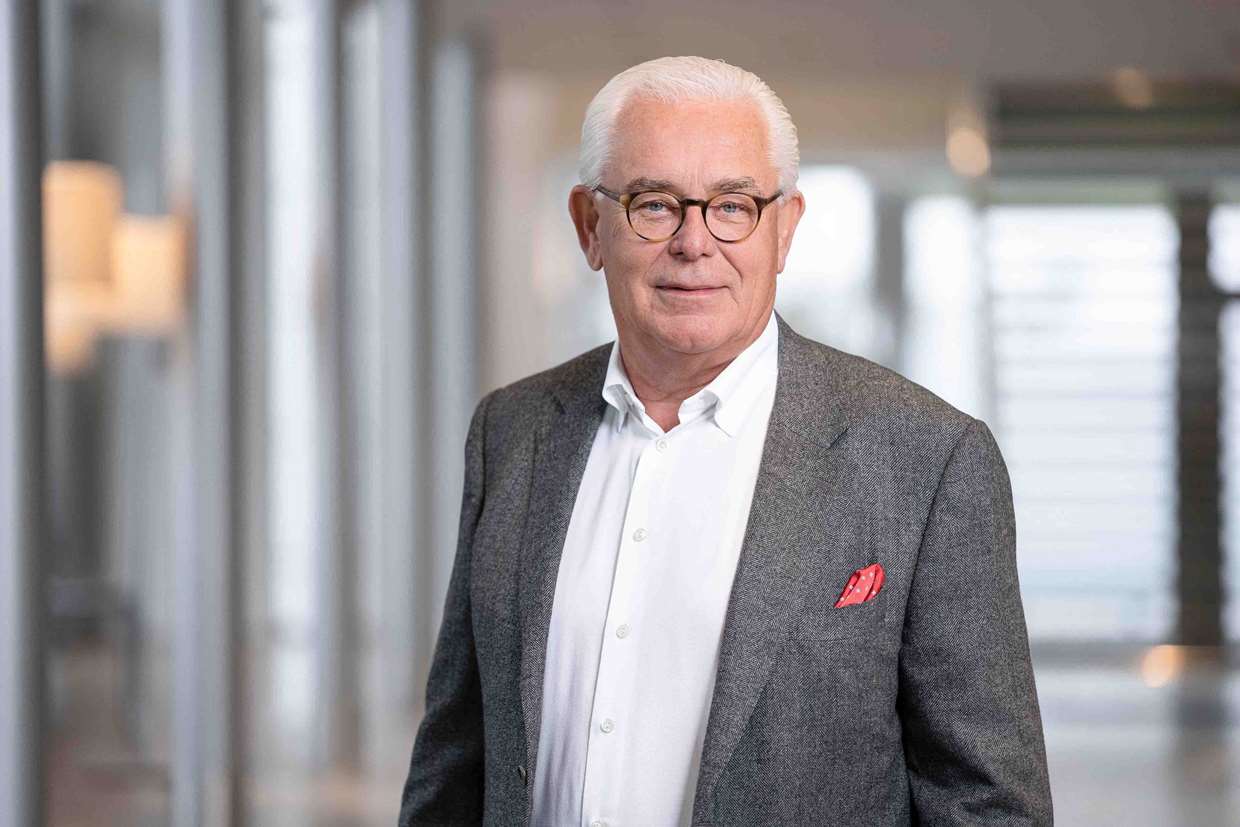
Heinz Haller
1955, Swiss citizen, resident in Andermatt UR, MBA IMD, Lausanne, non-executive member of the Board of Directors since 25 April 2014. 1980 – 1994 various leading positions in The Dow Chemical Company, Horgen / Frankfurt (D) / Midland MI (USA); 1994 – 1999 Managing Director of Plüss-Staufer AG, Oftringen; 2000 – 2001 Chief Executive Officer of Red Bull Sauber AG / Sauber Petronas Engineering AG, Hinwil; 2002 – 2006 Managing Director of Allianz Capital Partners GmbH, Munich (D); 2006 – 2010 Executive Vice President Performance Products and Systems Divisions and DAS (Dow Agricultural Science Division) of The Dow Chemical Company, Midland MI (USA); 2010 – 2012 Executive Vice President & Chief Commercial Officer of The Dow Chemical Company, Midland MI (USA); 2012 – 2018 Executive Vice President of The Dow Chemical Company, President Dow Europe, Middle East, Africa & India (EMEAI). Heinz Haller has never been part of the management board of Arbonia or one of its Group companies. He has no material business relationships with Arbonia or its Group companies.
Other activities and vested interests: Vice Chairman of the foundation board of the Innovation Park Zurich foundation, Dübendorf ZH; Chairman of the Board of Directors of GETEC PARK.SWISS AG, Muttenz BL; member of the Board of Directors of the Hockey Club Ambri Piotta SA, Quinto TI.
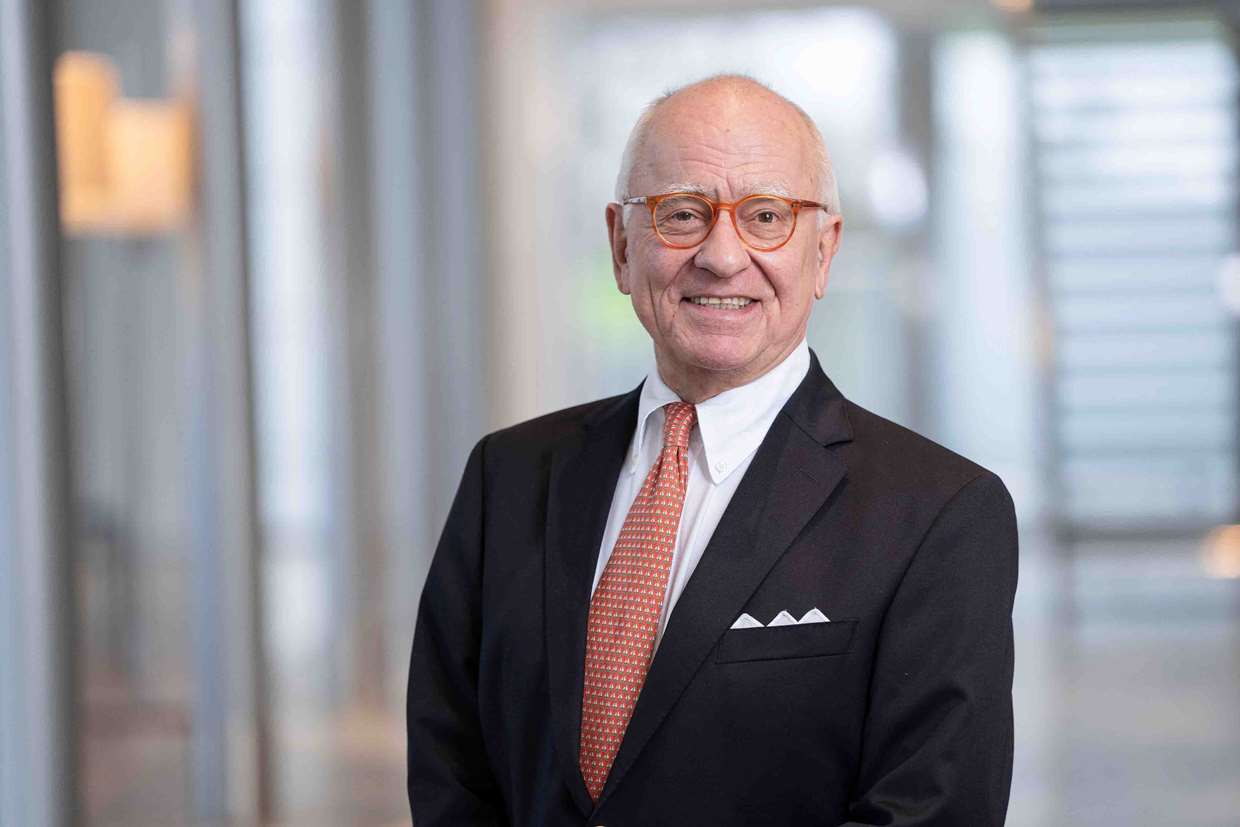
Michael Pieper
1946, Swiss citizen, resident in Hergiswil NW, lic. oec. HSG, non-executive member of the Board of Directors since 17 April 2015. Since 1989 owner and CEO of the Franke / Artemis Group; 1989 – 2012 CEO of the Franke Group, since 2013 CEO of Artemis Holding AG and its worldwide group companies. Michael Pieper controls the largest shareholder in Arbonia (see 1.2). Michael Pieper has never been part of the management board of Arbonia or one of its Group companies. He has no material business relationships with Arbonia or its Group companies.
Other activities and vested interests: member of the Board of Directors of Franke Holding AG, Aarburg AG; member of the Board of Directors of BERGOS AG, Zurich ZH; Vice Chairman of the Board of Directors of Forbo Holding AG, Baar ZG; member of the Board of Directors of Autoneum Holding AG, Winterthur ZH; member of the Board of Directors of Reppisch-Werke AG; Dietikon ZH, member of the supervisory board of Duravit AG, Hornberg (D); member of the advisory board south of Deutsche Bank AG, Frankfurt / Main (D).
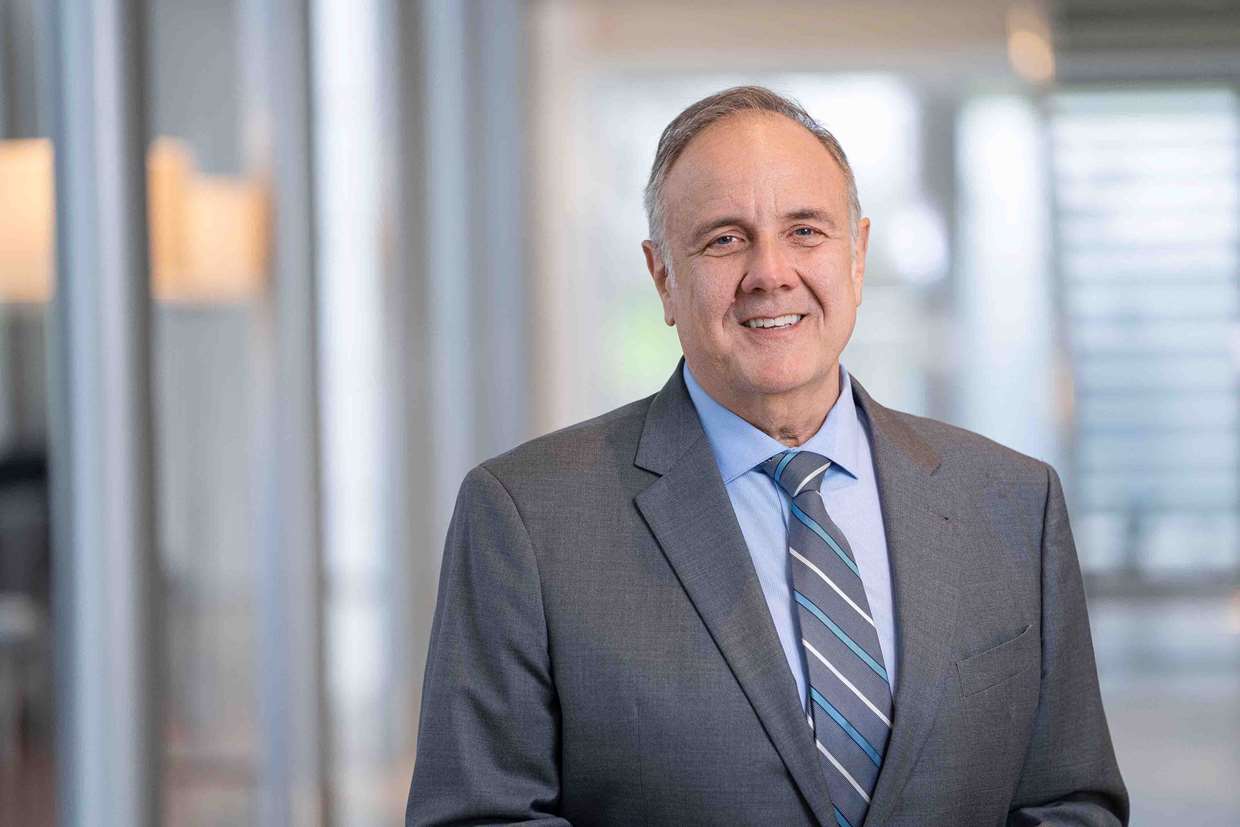
Thomas Lozser
1961, Swiss and US citizen, resident in Novi, Michigan (USA), degree in engineering from ETH, MBA, non-executive member of the Board of Directors since 13 December 2016. 1988 – 1992 various leadership positions at MPI International, Rochester Hills, Michigan (USA); 1992 – 1998 General Manager / President, Kautex Textron, Avilla, Indiana (USA); 1998 – 2000 Senior Vice President Operations, Kautex Textron, Troy, Michigan (USA); 2000 – 2002 President and shareholder, Magnetic USA Inc., Olney Illinois (USA); following the takeover by SKF USA Inc. 2002 – 2005 Vice President Sales Linear Technology, SKF USA Inc. Bethlehem, Pennsylvania (USA); 2005 – 2010 CEO of the Coatings Business Unit at the former Looser Group, Arbon; independent entrepreneur since 2010. Thomas Lozser has never been part of the management board of Arbonia. He has no material business relationships with Arbonia or its Group companies.
Other activities and vested interests: member of the Board of Directors of Mopec Inc., Oak Park, Michigan (USA); board observer of Helvetica Capital AG, Zurich; active as an advisor to various companies, whereby his activities as an advisor do not present any conflict of interest with the Arbonia Group.

Dr. Carsten Voigtländer
1963, German citizen, resident in Mühbrook (D), graduate in mechanical engineering, Dr. Ing. process engineering, INSEAD Advanced Management Programme, non-executive member of the Board of Directors since 12 April 2019. 1989 – 1994 research assistant at the Institut für Thermodynamik of the Technische Universität Braunschweig (D), 1994 – 2002 various management positions at Neumag GmbH, Neumünster (D): development, project management, Managing Director Technology, management spokesman; 2002 – 2006 CEO of Neumag and member of management at Saurer GmbH & Co. KG, Neumünster (D); 2006 – 2009 CEO of Oerlikon Textile GmbH & Co. KG, Remscheid (D); 2009 – 2018 Managing Director Vaillant GmbH, Remscheid (D): 2009 – 2010 CTO, 2011 – 2018 CEO and Chairman of the Management Board. Since 2018 various consultancy, administration and supervisory board mandates as well as owner of Voigtländer Board Advisory, Mühbrook (D). Dr. Carsten Voigtländer has never been part of the management board of Arbonia or one of its Group companies. He has no material business relationships with Arbonia or its Group companies.
Other activities and vested interests: member of the Board of Directors of Behr Bircher Cellpack BBC AG, Villmergen AG; senior advisor of INNIO Jenbacher GmbH & Co. OG, Jenbach (AT); member of the Board of Directors of Electrolux Professional AB, Ljungby (SE); member of the foundation board of Friedhelm Loh Stiftung & Co. KG, Haiger (D); member of the Board of Directors of Stulz Verwaltungsgesellschaft mbH, Hamburg (D); Chairman of the advisory board of Oikos International GmbH, Schlüchtern (D); member of the supervisory board of Testo Management SE, Titisee-Neustadt (D); member of the supervisory board of ecoworks GmbH, Berlin (D); active as an advisor for various companies, whereby his activities as an advisor does not present any conflict of interest with the Arbonia Group.
The members of the Board of Directors have a wide variety of competences that enable them to execute their mandate in the highest governance body of Arbonia.
3.2.Number of permitted mandates
Members of the Board of Directors may have a maximum of 16 mandates outside the Group, of which no more than five may be with listed companies and no more than eight with companies subject to regular auditing (including the five listed companies). Additionally, members of Board of Directors may exercise a maximum of five mandates for charitable organisations. When calculating the maximum number of mandates, the mandate as Chairperson of the Board of Directors at a company subject to regular auditing counts as two mandates.1 Mandates at different companies belonging to the same corporate group count as one mandate. More details on the rules for the number of permitted mandates can be found in Article 29 of the Articles of Association (www.arbonia.com/ en/corporate-governance).
1 However, the mandate as Chairperson of the supervisory board only counts as one mandate.
3.3.Election and term of office
The Chairperson of the Board of Directors and the other members of the Board of Directors are individually elected by the Annual General Meeting for a term of office of one year. The members of the Board of Directors may be re-elected. The terms of office of the current members of the Board of Directors are as follows:
* The election took place on 1 November 2016 and the assumption of office took place on 13 December 2016.
3.4.Internal organisation
3.4.1.Allocation of tasks within the Board of Directors
The Executive Chairman of the Board of Directors is Alexander von Witzleben and the Vice Chairman is Peter Barandun. Markus Oppliger acts as Lead Director. The Board of Directors is supported by an Audit Committee and a Nomination and Compensation Committee. In his role as Executive Chairman of the Board of Directors, Alexander von Witzleben heads Group Management.
3.4.2.Committees of the Board of Directors
The duties, responsibilities and working procedures of the committees are laid down in the by-laws (www.arbonia.com/en/company). The Board of Directors appoints the members of the committees, with the exception of the Compensation Committee, whose members are elected by the General Meeting. The Chairpersons of the committees are appointed by the Board of Directors.
3.4.2.1.Audit Committee
The Audit Committee is convened by the Chairperson as often as business requires, but at least three times a year. It consists of three members. Two members of the Audit Committee are non-executive and independent. Alexander von Witzleben is simultaneously Executive Chairman of the Board of Directors. All members of the Audit Committee have experience in finance and accounting.
The Audit Committee reviews the effectiveness of the external and internal auditors, the internal control system including risk management, the compliance with standards from a financial and legal perspective, the accounting system, the financial reports, as well as the performance, fees and independence of the external auditors. It draws up a recommendation to the Board of Directors regarding the submission of the financial statements to the General Meeting. Within the scope of these duties, the Audit Committee has comprehensive rights of inspection and information. It may order investigations and consult external advisors.
Reporting to the Audit Committee is Internal Audit, which performs an independent, Group-wide auditing and monitoring role (see 3.6 below). The Audit Committee is authorised to make decisions regarding the tasks entrusted to it provided that the respective matter does not concern a non-delegable and inalienable duty of the Board of Directors pursuant to Article 716a of the Swiss Code of Obligations. The committee may submit issues within the scope of its decision-making powers to the Board of Directors.
The committee consists of the following members:
- Markus Oppliger, Chairman
- Alexander von Witzleben
- Peter E. Bodmer
The Audit Committee met a total of four times during the reporting year; three of these meetings were ordinary and one was extraordinary. The extraordinary meeting was held as a video conference. The Group CFO attended all four meetings and the external and internal auditors attended the three ordinary meetings. At each following meeting of all members of the Board of Directors, the Chairman reports on the findings and resolutions of the Audit Committee. The three ordinary meetings of the Audit Committee lasted two and a quarter hours on average and the extraordinary meeting lasted 50 minutes. The attendance rate was 100% for all four meetings. The Chairman of the Audit Committee and the Head of Internal Audit regularly held additional meetings to discuss in detail the findings of Internal Audit and its tasks. In the reporting year, the Audit Committee, in addition to its annually recurring topics, focused on subjects including the new Swiss Code of Best Practice for Corporate Governance, the Corporate Sustainability Reporting Directive (CSRD) and the impact of artificial intelligence.
3.4.2.2.Nomination and Compensation Committee
The members of the Compensation Committee were elected by the General Meeting, which took place on 21 April 2023. The members of the Compensation Committee also take care of the duties of the Nomination Committee. Two members of the Nomination and Compensation Committee are non-executive and independent. Alexander von Witzleben is simultaneously Executive Chairman of the Board of Directors.
The Nomination and Compensation Committee is convened by the Chairperson of the Committee as often as business requires, but normally two to three times a year. The Nomination and Compensation Committee gives the Board of Directors recommendations regarding the Group’s salary policy and compensation system, among other things. The Nomination and Compensation Committee determines the salaries of the individual members of Group Management. It approves, in principle, bonus programmes and profit-sharing schemes for employees as well as pension fund solutions and benefit plans. The Nomination and Compensation Committee is also responsible for the preparation of the Compensation Report and the request to all members of the Board of Directors for approval of the compensation of the members of the Board of Directors and Group Management for the attention of the General Meeting. Furthermore, the Nomination and Compensation Committee determines the principles for the selection of candidates for election to the Board of Directors and Group Management. It identifies suitable candidates for the Board of Directors and Group Management and conducts the requisite selection procedures. The Nomination and Compensation Committee also determines the principles for the management and development of the members of the Board of Directors and Group Management. It evaluates the performance of the members of Group Management. In the reporting year, the Nomination and Compensation Committee, in addition to the annually recurring topics in connection with compensation, focused heavily on the legal gender quotas and, related to this, the proportion of women in the Arbonia Group, as well as reporting on non-financial matters.
Essentially, the Nomination and Compensation Committee performs a supporting and preparatory role to the benefit of all members of the Board of Directors.
The Nomination and Compensation Committee is only authorised to make decisions regarding the tasks expressly delegated to it under the Group’s regulation of powers. All members of the Board of Directors decide on matters not expressly delegated to the Nomination and Compensation Committee under the regulation of powers. The committee may submit issues within the scope of its decision-making powers to the Board of Directors.
The Nomination and Compensation Committee consists of the following members:
- Peter Barandun, Chairman
- Alexander von Witzleben
- Heinz Haller
The Nomination and Compensation Committee met twice during the reporting year. The meetings lasted for 50 minutes on average. The attendance rate was 100% for both meetings. The Group CFO attended both meetings. At each following meeting of all members of the Board of Directors, the Chairman reports on the findings and resolutions of the Nomination and Compensation Committee. The meeting minutes of the Nomination and Compensation Committee are provided to all members of the Board of Directors for inspection.
3.4.3.Working procedures of the Board of Directors
The Executive Chairman convenes the Board of Directors as often as business requires, but at least four times a year. During the reporting year, the Board of Directors met for five ordinary meetings and one extraordinary meeting. At two of the five ordinary meetings, one member of the Board of Directors joined via video conference. The extraordinary meeting was held entirely as a video conference. In the reporting year, the Board of Directors also passed one resolution by circular letter. Ordinary meetings of the Board of Directors usually last half a day. The extraordinary meeting lasted one hour. All six meetings in the reporting year were attended by all members of the Board of Directors.
In the reporting year, the Board of Directors performed its duties directly. The Group CFO and the members of Group Management also attended the five ordinary meetings and the one extraordinary meeting. Managers are regularly invited to meetings to discuss issues that fall within their field of responsibility or scope of activities.
3.5.Regulation of powers
The Board of Directors is responsible for guiding, supervising and monitoring management. It represents the company externally and attends to all matters that are not transferred to another body within the company on the basis of legislation, Articles of Association, or by-laws.
The Board of Directors delegated the administration of Group Management to the Chairman in accordance with Article 15 para. 2 of the Articles of Association (www.arbonia.com/en/corporate-governance). The therefore Executive Chairman of the Board of Directors remains solely a member of the Board of Directors and does not become a member of Group Management.
The Board of Directors enacts the necessary rules, instructions and guidelines and establishes the organisational structure and risk policy.
The main duties of the Board of Directors are:
- Guidance of the Group and issuing of necessary instructions;
- Establishment of the Group’s organisational structure;
- Appointment and dismissal of persons entrusted with management and representation;
- Supervision of persons entrusted with management, specifically with regard to compliance with legislation, Articles of Association, regulations and instructions;
- Structuring of the accounting system, financial control and financial planning;
- Preparation of the Annual Report and the Compensation Report, as well as preparation for the General Meeting and implementation of its resolutions;
- Preparation of compensation requests for the General Meeting;
- Determination of the capital structure of the company;
- Issue of bonds, participation certificates, convertible bonds and options, as well as determination of the terms and conditions;
- Determination of the strategy of the company, the divisions and the subsidiaries;
- Decisions concerning investments, joint ventures, real estate and shareholdings, where these are of particular importance to the company and exceed a certain level;
- Annual risk assessment for the company;
- Submission of a request for a composition moratorium and notification of the court in the event of over-indebtedness.
The division of powers between the Board of Directors and Group Management is set out in detail in the by-laws (www.arbonia.com/en/company) and in the regulation of powers. Unless otherwise stated in legislation, the Articles of Association, or the by-laws, the Board of Directors otherwise delegates management entirely to Group Management, headed by the Executive Chairman of the Board of Directors, pursuant to Article 2.5 of the by-laws (www.arbonia.com/en/company).
The Executive Chairman of the Board of Directors is responsible for convening and presiding over the meetings of Group Management. He leads Group Management within the framework of the resolutions of the Board of Directors with a view to achieving the budget and the medium-term planning as well as the strategic goals. The members of the Group Management directly report to the Executive Chairman of the Board of Directors.
The Executive Chairman of the Board of Directors also attends the monthly business review meetings, which are held separately for the Climate Division and the Doors Division. Business review meetings cover topics including the current course of business and ongoing issues in the areas of marketing & sales, operations, purchasing, research & development, as well as mergers & acquisitions. At the business review meetings, any proposals that the divisions intend to submit to Group Management and, where appropriate, the Board of Directors are discussed in advance.
The Executive Chairman of the Board of Directors furthermore represents or presents Arbonia together with the Group CFO and the Head of Corporate Communications & Investor Relations at investor and analyst events.
The Executive Chairman of the Board of Directors regularly reports to the Board of Directors regarding important business and without delay in the event extraordinary developments.
3.6.Information and control instruments vis-à-vis the management
Through various channels, the Board of Directors is regularly updated on the activities of Group Management and the divisions. The management information system (MIS) provides the members of the Board of Directors with key information about the financial and income situation of the Group on a monthly basis. The Executive Chairman of the Board of Directors reports regularly to the Board of Directors at ordinary meetings of the Board of Directors and without delay in the event of extraordinary developments. The members of Group Management regularly attend ordinary meetings of the Board of Directors and report on the course of business in their areas. As a rule, the members of the Board of Directors may request any additional information required to carry out their tasks.
The external statutory auditor provides the Audit Committee with information on the main findings of the audit. Regular contact also takes place between the Chairperson of the Audit Committee, the Group CFO and the Head of Internal Audit (see 3.4.2.1). Where required, the Chairperson of the Audit Committee also informs the other members of the Board of Directors regarding his or her findings.
The principal role of Internal Audit is to monitor processes and structures throughout the Group. Internal Audit is also responsible for the risk management process. Internal Audit summarises the audits it is to carry out in an annual audit plan. This audit plan also incorporates the risks identified in the framework of the risk management process that is performed every year in the two divisions and in Corporate Functions. Each audit plan is approved by the Audit Committee. The Audit Committee also assigns special audit mandates to Internal Audit as and when required. The respective audit findings are discussed with the Audit Committee and communicated to the Board of Directors in writing. The Internal Audit provided the members of the Board of Directors with 15 audit reports during the reporting year. If material risks are identified, measures are defined to reduce them. Internal Audit adopts a systematic approach to monitoring risks and measures, and carries out its work in accordance with the international standards governing internal auditors’ professional duties. It regularly reports to the Audit Committee and Board of Directors on the scale of risks and any changes to the risk situation as well as the status of measures implemented. The Board of Directors received a total of four written reports on the implementation of measures during the reporting year. The external auditors also have access to all audit reports and the reports from the ongoing monitoring of risks and measures. Additionally, Internal Audit issued three Internal Audit status reports informing the Audit Committee and the Board of Directors about the key findings from the audits and the current status of the internal control system (ICS).
Furthermore, the Audit Committee and Board of Directors are informed about the results of the risk management process.
The Audit Committee is also informed about incoming whistleblowing reports. Reports of this nature are handled by three internal reporting offices at Group level and, in line with the EU Whistleblowing Directive and its implementation in the respective national law of the affected EU member states, by reporting offices within the individual Group companies. All Arbonia employees are requested to report any violations of the Code of Conduct of which they become aware (www.arbonia.com/en/corporate-governance).
4.Group Management
4.1.Members of Group Management
As of 31 December 2023, Group Management consisted of the following members:

Daniel Wüest
1970, Swiss citizen, Master of Arts (lic. oec. publ.) in economics with specialisation in finance and banking, Group Chief Financial Officer (Group CFO) since 2019; 2014 – 2019 Head of Mid-Market Advisory Switzerland, UBS Switzerland AG, Zurich; 1997 – 2014 various positions at UBS Investment Bank Zurich: most recently from 2009 – 2014 as Managing Director Investment Banking.
Other activities and vested interests: board member of SwissHoldings, the federation of Swiss-based multinational enterprises, Bern BE; board member of the federation of Swiss financial directors, Zurich ZH; member of the advisory board of KIWI.KI GmbH, Berlin (D).
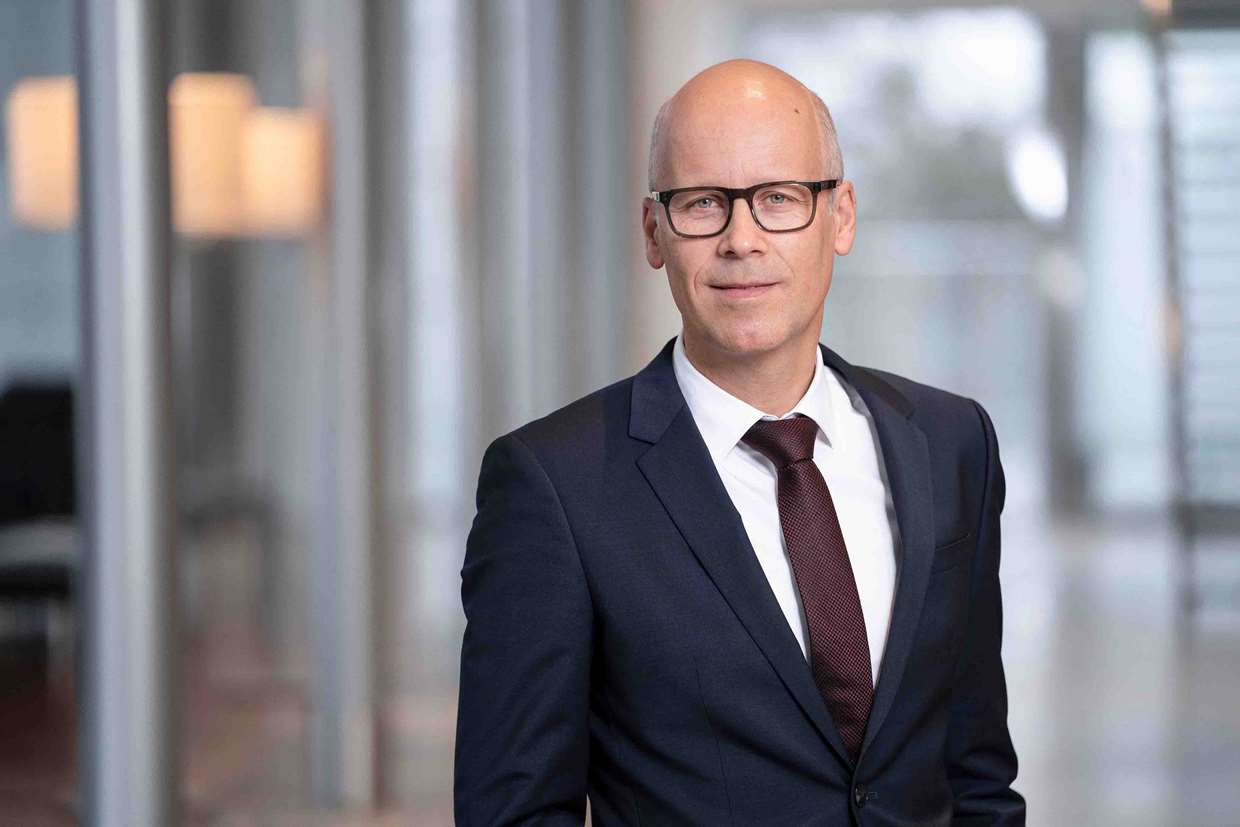
Alexander Kaiss
1969, German citizen, graduate in mechanical engineering, Chief Executive Officer of the Climate Division since 1 July 2021, 2018 – 2020 Chief Operating Officer of the Heating, Ventilation and Air Conditioning Division (now the Climate Division), 2013 – 2017 Technology Director of the Heating Technology Business Unit, 2001 – 2012 Plant Manager Kermi s.r.o., 1997 – 2001 Head of Shower Stall Engineering at Kermi GmbH; 1995 –1997 production scheduling engineer for air bag control units (automotive engineering area) at SIEMENS AG.
Other activities and vested interests: member of the Board of Directors of the Federation of German Heating Industry (BDH), Cologne (D); Chairman of the Board of Directors of the Quality Association Steel Radiators, Cologne (D).

Claudius Moor
1983, Swiss citizen, Master in Information, Media and Technology Management, University of St. Gallen (HSG), Chief Executive Officer of the Doors Division since 2020 and Managing Director Sales & Marketing at Prüm and Garant since 2019 (until 31 December 2023); 2017 – 2020 member of the Doors Division management; 2015 – 2017 Head of Group Strategy and Company Development; 2010 – 2015 business consultant and project manager at The Boston Consulting Group.
Other activities and vested interests: Chairman of the advisory board of KIWI.KI GmbH Berlin (D); member of the advisory board of Griffwerk GmbH, Blaustein (D).
4.2.Number of permitted mandates
Members of Group Management may have a maximum of five mandates outside the Group, of which no more than one may be with a listed company and no more than two with companies subject to regular auditing (including the listed company). More details on the rules for the number of permitted mandates can be found in Article 29 of the Articles of Association (www.arbonia.com/en/corporate-governance).
4.3.Management contracts
Arbonia has not signed any management contracts with companies or natural persons outside the Group.
5.Compensation, shareholdings and loans
5.1.Content and determination procedure for compensation and the shareholding programme
The basis and elements of compensation and the shareholding programmes as well as the procedure for their determination are presented in the Compensation Report.
5.2.Principles of performance-related compensation, the allocation of shares and the determination of the additional amount
Members of Group Management and members of the Board of Directors who take on management tasks corresponding to a member of Group Management receive variable compensation, which depends on particular success criteria. The variable compensation can include a cash portion and a portion in temporarily blocked shares pursuant to the share-based payment programme (see Article 22 para. 1 and 2 of the Articles of Association, www.arbonia.com/en/corporate-governance).
The variable compensation depends on the company results. The success criteria must be determined by the Board of Directors taking the position and responsibility of the recipient into account on the motion of the Compensation Committee. They include corporate and / or personal goals. At the beginning of each financial year the Board of Directors determines the corporate and / or personal goals. The target achievement is evaluated by the Compensation Committee after the financial year has ended and is determined by the Board of Directors upon request. A bonus amount is determined in individual agreements. If the goals are achieved in full, 100% of the bonus amount stipulated in an individual agreement is paid out. If the targets are exceeded, the variable compensation may exceed the bonus amount agreed in individual contracts up to a maximum amount. If the target achievement is below a particular threshold, no variable compensation is paid. The variable compensation is up to 150% of the fixed compensation (see Article 24 para. 1 of the Articles of Association, www.arbonia.com/en/corporate-governance).
According to Article 23 and Article 24 para. 2 of the Articles of Association (www.arbonia.com/en/company/corporate- governance), the Board of Directors is authorised to award additional compensation to a member of Group Management in special situations. This is based on corporate and / or personal targets related to the special situation. No additional compensation of this kind was paid during the reporting year.
The Board of Directors determines the details of the assignment of shares to the members of the Board of Directors and Group Management in a share-based payment programme. Article 25 of the Articles of Association contains information on what the share-based payment programme covers (www.arbonia.com/en/company/corporate-governance).
An additional amount is available for the compensation of newly appointed members of Group Management or members of the Board of Directors who take on new management tasks corresponding to a member of Group Management if the compensation already approved for the period involved is insufficient. This additional amount may not exceed 80% of the approved total compensation for Group Management for the person who is in charge of management and 40% each for every other person entrusted with management tasks for the period involved. This rule can be found in Article 27 of the Articles of Association (www.arbonia.com/en/company/corporate-governance).
5.3.Loans, credit and pension benefits
According to Article 26 of the Articles of Association, Arbonia does not grant the members of the Board of Directors and Group Management any loans, credit, or pension benefits outside the occupational pension scheme or securities. Exempt from this are advances of social security and tax charges for persons subject to withholding tax (www.arbonia.com/en/company/corporate-governance).
5.4.Rules concerning voting at the General Meeting on compensation
Based on Article 23 para. 2 of the Articles of Association, the Board of Directors allows the General Meeting to approve the maximum compensation of the Board of Directors for the year of office ending at the corresponding General Meeting as well as the maximum fixed and variable compensation for Group Management for the past financial year retrospectively. Every year, the Board of Directors submits the Compensation Report for the past financial year to the General Meeting for consultative (non-binding) approval. More details on compensation voting can be found in Article 23 of the Articles of Association (www.arbonia.com/en/corporate-governance).
6.Shareholders’ participation right
The Articles of Association do not contain any regulations that deviate from the law with regard to participation in the General Meeting and the exercise of voting rights. Each share registered in the share register entitles the holder to one vote. Every shareholder may be represented at the General Meeting by a proxy furnishing written power of attorney or by the independent proxy (with written or electronic power of attorney).
According to Article 12 para. 4 of the Articles of Association, the Board of Directors determines the requirements for the power of attorney and instructions for the independent proxy. Under this regulation, the Board of Directors is also entitled to determine the requirements for electronic voting (www.arbonia.com/en/corporate-governance).
According to Article 10 para. 5 of the Articles of Association, the General Meeting may be held in one or multiple locations; the Board of Directors may make provision for shareholders unable to attend the General Meeting in person to exercise their rights using electronic means. According to Article 10 para. 6 of the Articles of Association, the General Meeting may also be held exclusively using electronic means (including phone, video conference, or other audiovisual or electronic means of communication) rather than in a specific location. The Board of Directors regulates the use of these electronic means and ensures that the identities of the participants are known, the votes in the meeting are transferred immediately, each participant is able to submit motions and participate in the discussion and the voting results cannot be falsified (www.arbonia.com/en/corporate-governance).
6.1.Statutory quorums
Under Article 12 para. 6 of the Articles of Association, in the event of elections which do not produce a result in the first round, the relative majority decide in the second round. Apart from this, the Articles of Association do not contain any regulations that deviate from the law (www.arbonia.com/en/corporate-governance).
6.2.Convocation of the General Meeting
The Articles of Association do not contain any regulations that deviate from the law. According to Article 9 para. 3 of the Articles of Association, the Board of Directors must issue invitations to Extraordinary General Meetings if shareholders who alone or collectively represent at least 5% of the share capital or votes request a convocation in writing, specifying the agenda items and motions (www.arbonia.com/en/corporate-governance).
6.3.Inclusion of items on the agenda
According to Article 9 para. 4 of the Articles of Association, shareholders who alone or collectively represent at least 0.5% of the share capital or votes may (jointly) request the inclusion of items on the agenda. The inclusion of items on the agenda must be requested in writing at least 40 days before the meeting, with the agenda items and motions specified. Under the same conditions, shareholders may request that motions relating to agenda items are included in the convocation.
6.4.Entries in the share register
When sending invitations to the General Meeting, the Board of Directors will announce the date up to which entries can be made in the share register with regard to participation in the General Meeting. The invitation to the General Meeting, stating this date, will be published on the Arbonia website no later than 20 days before the General Meeting and can be accessed via the following link: www.arbonia.com/annual-general-meeting.
7.Change of control and defence measures
7.1.Duty to make an offer
A purchaser of company shares must make a public offer as stipulated by Article 135 para. 1 of the Federal Act on Financial Market Infrastructures and Market Conduct in Securities and Derivatives Trading (FinfraG). There is no opting-out clause (Art. 125 para. 3 and para. 4 of the FinfraG) or opting-up clause (Art. 135 para. 1 of the FinfraG).
7.2.Change-of-control clauses
Arbonia has no agreements or plans for the benefit of members of the Board of Directors and / or Group Management or other members of senior management that contain change-of-control clauses. However, the share-based payment programme for members of Group Management and the Board of Directors allows the Board of Directors to cancel the vesting period for the transfer of the granted shares in the event of a change of control.
8.Statutory auditors
8.1.Duration of the mandate and term of office of the lead auditor
8.1.1.Date of assumption of the existing mandate
On 28 April 2017, the General Meeting elected KPMG AG, St. Gallen, as the new statutory auditor. They audited the 2023 Financial Statements and the consolidated financial statement of Arbonia.
8.1.2.Assumption of office of the lead auditor
Kurt Stocker has held the position of lead auditor since 28 April 2017.
8.2.Auditing fees
In 2023, the various statutory auditors billed a total of CHF 1 158 000 (previous year: CHF 1 072 000) for auditing the Financial Statements and consolidated financial statement of Arbonia and the Financial Statements of the Group companies. Of this amount, the statutory auditor KPMG AG accounted for CHF 1 012 000 (previous year: CHF 964 000) in 2023.
8.3.Additional fees
In 2023, the statutory auditor KPMG AG and other auditors of Group companies billed CHF 329 000 (previous year: CHF 351 000) for additional services, CHF 300 000 of which (previous year: CHF 338 000) was attributable to KPMG AG. Of the additional services performed by KPMG AG in 2023, CHF 263 000 was for tax advice and CHF 37 000 was for other services.
8.4.Informational instruments pertaining to the external auditors
The external auditors attended a total of three meetings of the Audit Committee in the reporting year. The Audit Committee monitors the qualification, independence and performance of the external statutory auditors on behalf of the Board of Directors and reports to the Board of Directors on its findings. In the reporting year, the Audit Committee oversaw the activities of the external statutory auditors by having the reports on the Financial Statements, the consolidated financial statement and the comprehensive report explained directly by the statutory auditors (see 3.4.2.1). The external and internal auditors also regularly discuss the methodology and further development of the internal control system (ICS). The internal and external auditors closely cooperate in the assessment of the existence of the ICS under Article 728a of the Swiss Code of Obligations and the evaluation of the effectiveness and efficiency of the ICS. The following factors are considered in the choice of external auditors: professional expertise, international network (representation in the relevant countries), value for money, industry experience, as well as the continuity and rapid availability of the audit team.
At the request of the external statutory auditor, the Audit Committee approves the audit fees and reviews them in light of developments in the previous year and an assessment of performance to ensure that they are appropriate. In accordance with the law, the external auditors’ lead auditor is rotated at least once every seven years.
9.Information policy
Arbonia pursues an open information policy towards the public and financial markets, based on the principles set out in the SIX Exchange Regulation listing rules and directives and in the Swiss Code of Best Practice for Corporate Governance. Through the annual report, Arbonia provides information about business performance, organisation and strategy. Integral parts of the annual report are the management report, the sustainability report including the reporting on non-financial matters and the Compensation Report. Arbonia’s First Semester Financial Report contains the consolidated income statement, the statement of comprehensive income, the balance sheet, the cash flow statement and the statement of changes in equity. In the reporting year, Arbonia published seven press releases. In addition to this, Arbonia gives comprehensive reports on its operating activities at its annual financial media and analyst conference. Arbonia also fosters dialogue with investors and the media at special events and roadshows.
Arbonia’s contact details are as follows:
Arbonia AG
Amriswilerstrasse 50, 9320 Arbon, Switzerland
T +41 71 447 41 41
holding@arbonia.com
All company information is available on the website www.arbonia.com. Interested parties can subscribe to press releases at www.arbonia.com/en/press-releases/susbscribe-to-press-releases and Arbonia publications can be ordered at www.arbonia.com/en/downloads/order-publications. All published press releases can be found at www.arbonia.com/en/press-releases.
The calendar of events is provided on page 244 of the annual report and on the Arbonia website at www.arbonia.com/en/investors.
10.Blackout periods
Arbonia regulates the ordinary and extraordinary blackout periods in the Guidelines for the Prevention of Insider Trading and Market Manipulation. The ordinary blackout periods are ordered before the publication of the net earnings for the year and the half-year results respectively. The members of the Board of Directors, Group Management and the division heads, including their assistants as well as all other employees who have access to the financial figures of Arbonia, in particular employees in the areas of Group Controlling, Finance, Investor Relations, Corporate Communications and the Company Secretary, are informed via e-mail of 1.) the beginning of a blackout period, 2.) its duration, 3.) the trading ban on Arbonia securities and 4.) the prohibition against providing tips to third parties. A total of approximately 65 persons are affected by the ordinary blackout periods. The blackout period in respect to the publication of the annual results for the year starts on the Friday before Christmas and lasts up to and including the day of publication. The blackout period in respect to the half-year results begins on 30 June and lasts up to and including the day of publication. In the reporting year, no exceptions to these rules were granted.